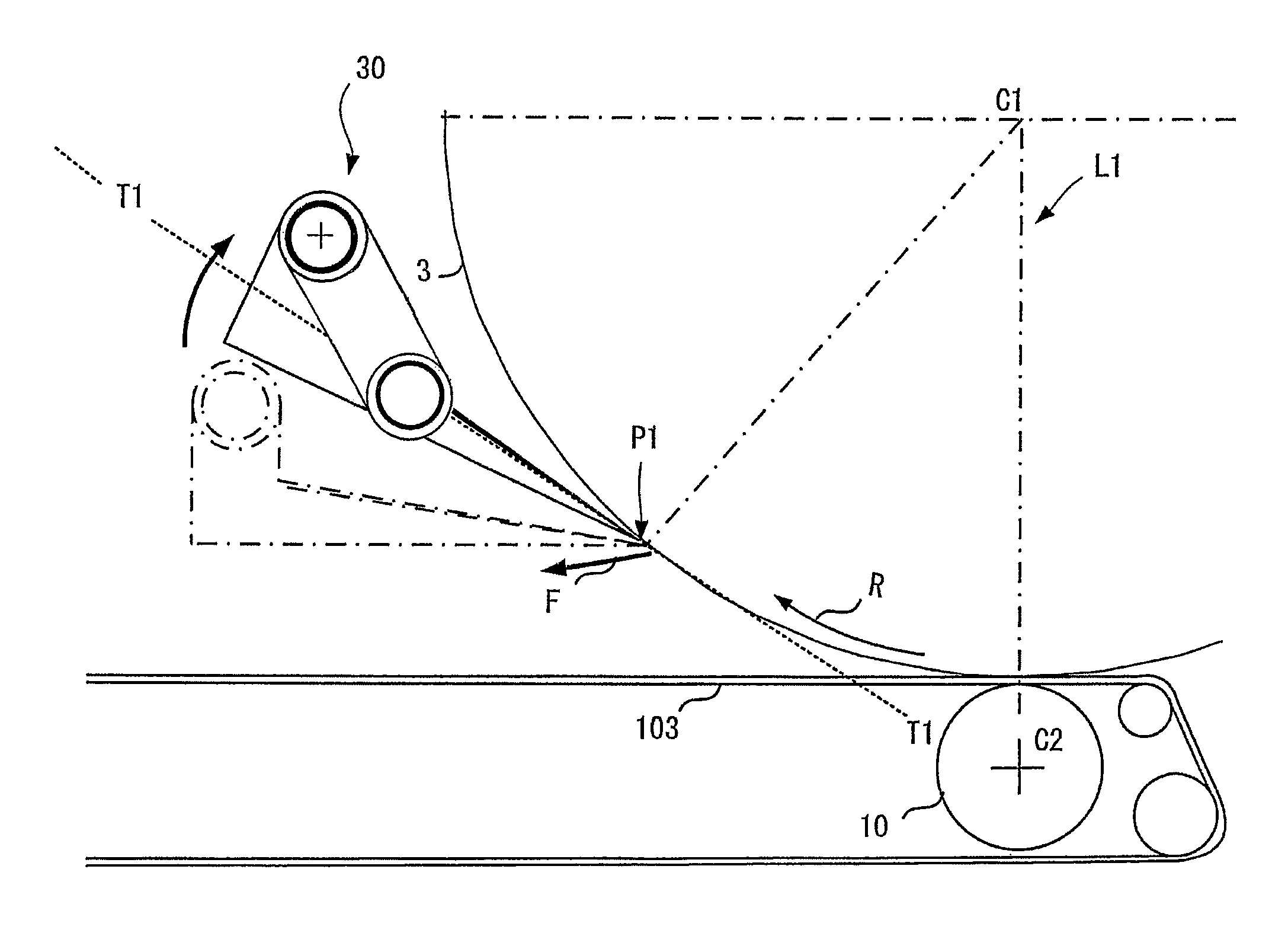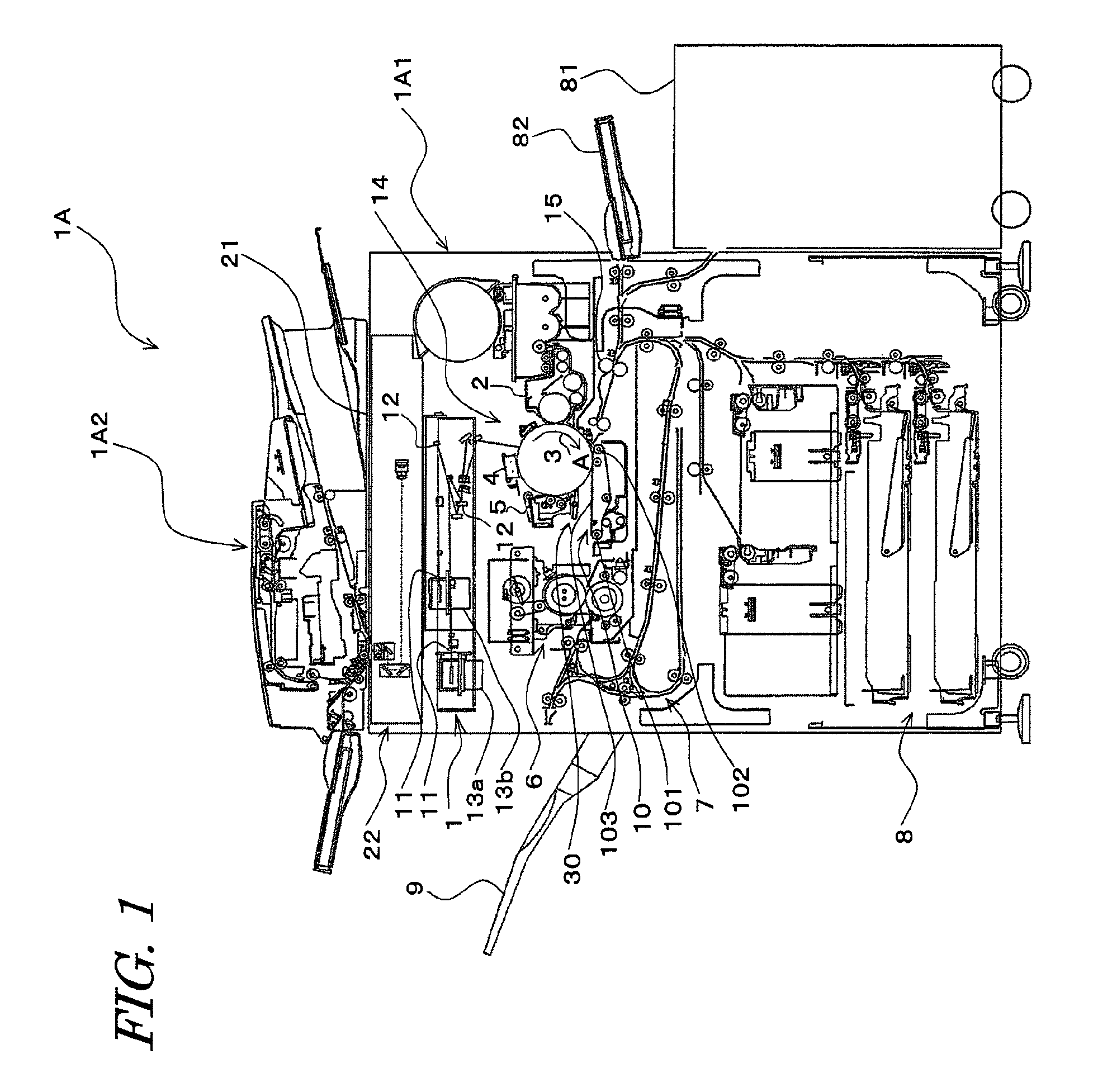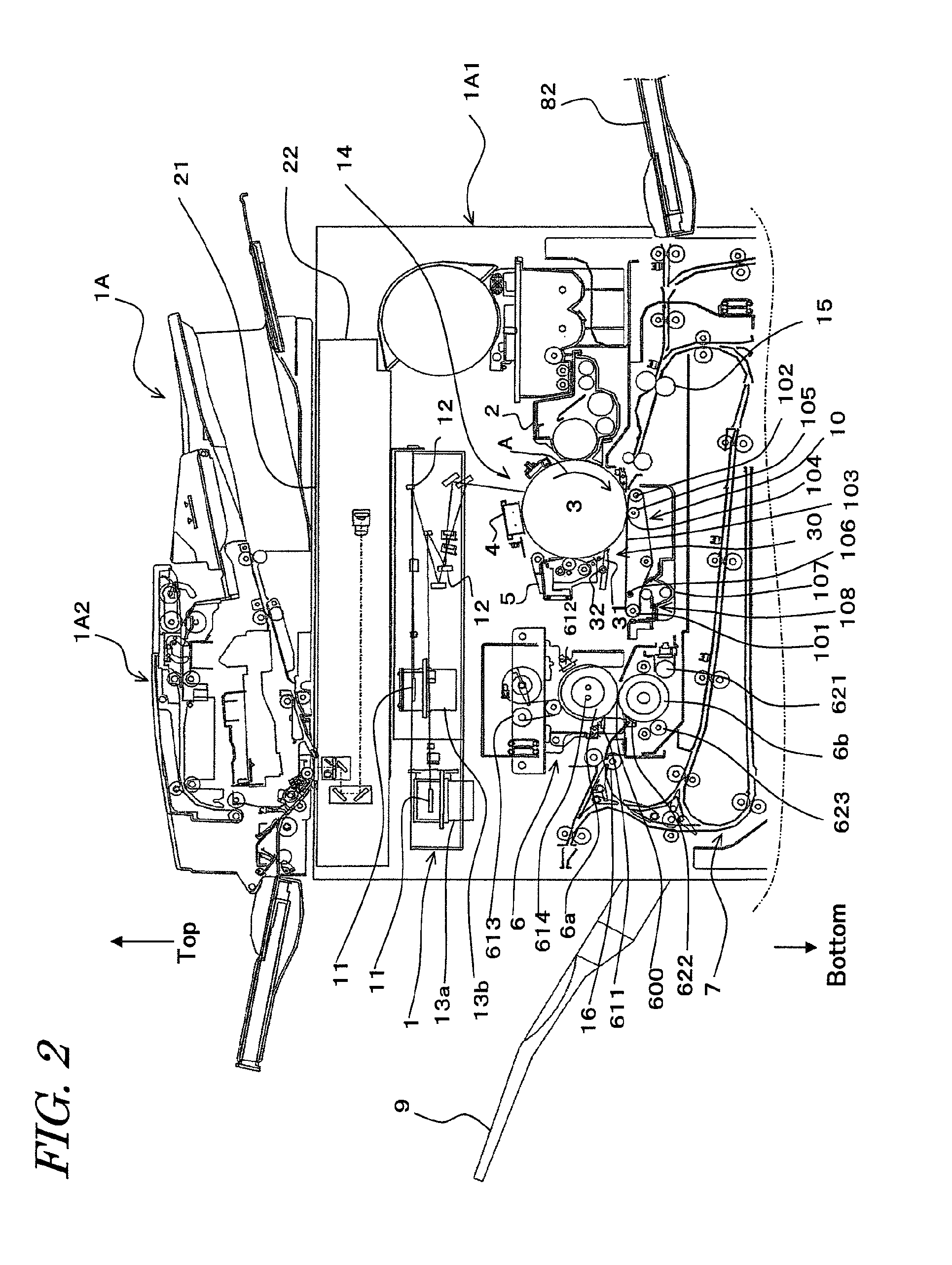Separating device
a separation device and separating member technology, applied in the direction of electrographic process equipment, instruments, optics, etc., can solve the problems of shortening the life of the photoreceptor drum, unable to obtain the required paper separation performance, and inability to extend the maintenance cycle of the image forming apparatus, so as to reduce the rotational moment, reduce the abrasion of the surface, and effectively prolong the life of the separating member and the photoreceptor drum
- Summary
- Abstract
- Description
- Claims
- Application Information
AI Technical Summary
Benefits of technology
Problems solved by technology
Method used
Image
Examples
Embodiment Construction
[0037]Referring next to the drawings, a separating device 30 according to the present embodiment will be described in detail. FIG. 1 is an illustrative diagram showing the overall configuration of an image forming apparatus including a separating device according to the present embodiment. FIG. 2 is a partial detailed diagram showing the configuration of the machine body of the image forming apparatus.
[0038]Separating device 30 according to the present embodiment includes a separation claw (separating member) 31 that abuts the paper (sheet medium) conveyed along the outer peripheral surface of a photoreceptor drum 3 to separate the paper from photoreceptor drum 3; and a separation claw driving mechanism (separating member driver) 32 for abutting and releasing separation claw 31 to and from photoreceptor drum 3, and is configured to separate the paper stuck to the outer peripheral surface of photoreceptor drum 3.
[0039]As shown in FIG. 3A, separation claw 31 is constructed so that the...
PUM
 Login to View More
Login to View More Abstract
Description
Claims
Application Information
 Login to View More
Login to View More - R&D
- Intellectual Property
- Life Sciences
- Materials
- Tech Scout
- Unparalleled Data Quality
- Higher Quality Content
- 60% Fewer Hallucinations
Browse by: Latest US Patents, China's latest patents, Technical Efficacy Thesaurus, Application Domain, Technology Topic, Popular Technical Reports.
© 2025 PatSnap. All rights reserved.Legal|Privacy policy|Modern Slavery Act Transparency Statement|Sitemap|About US| Contact US: help@patsnap.com



